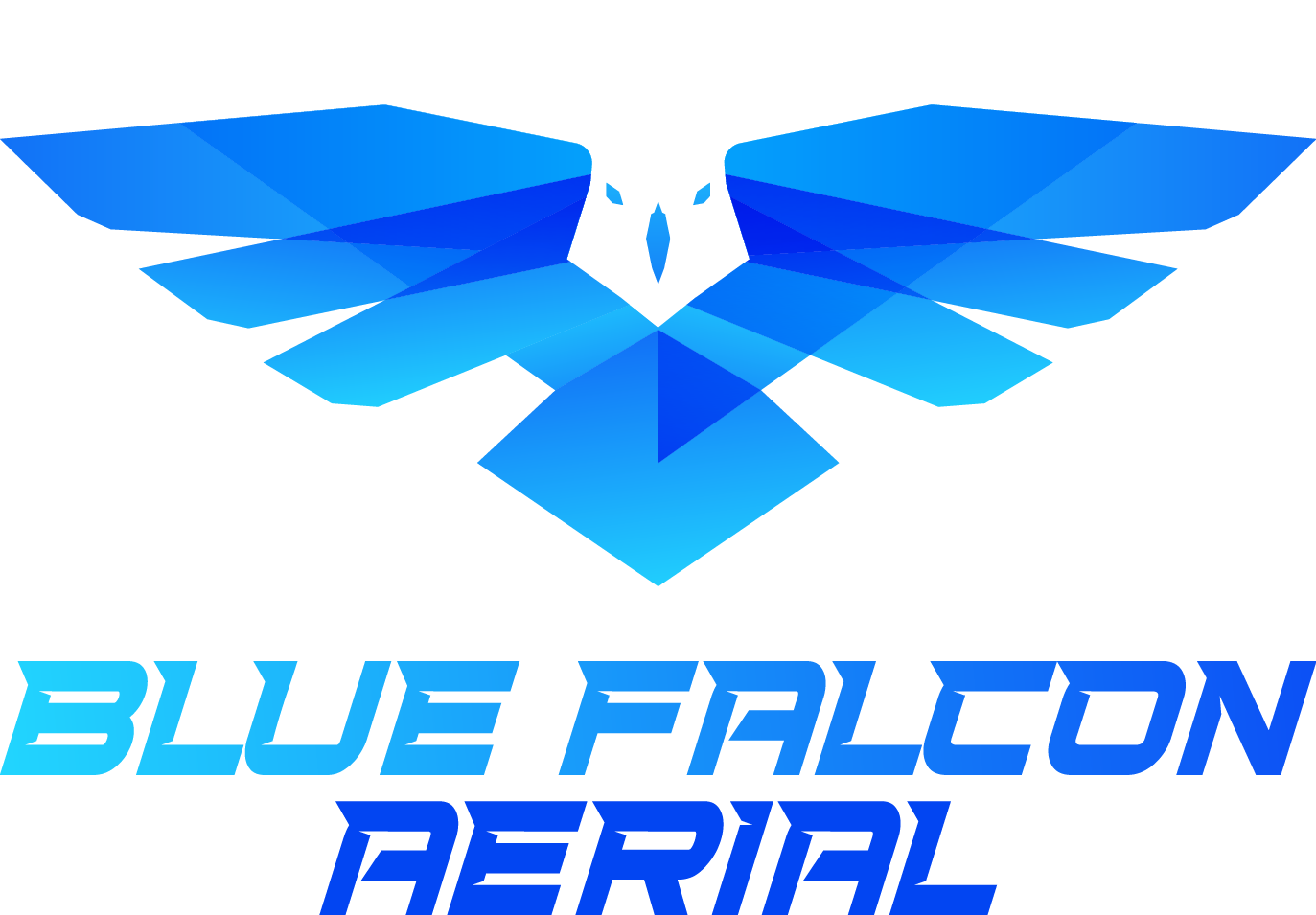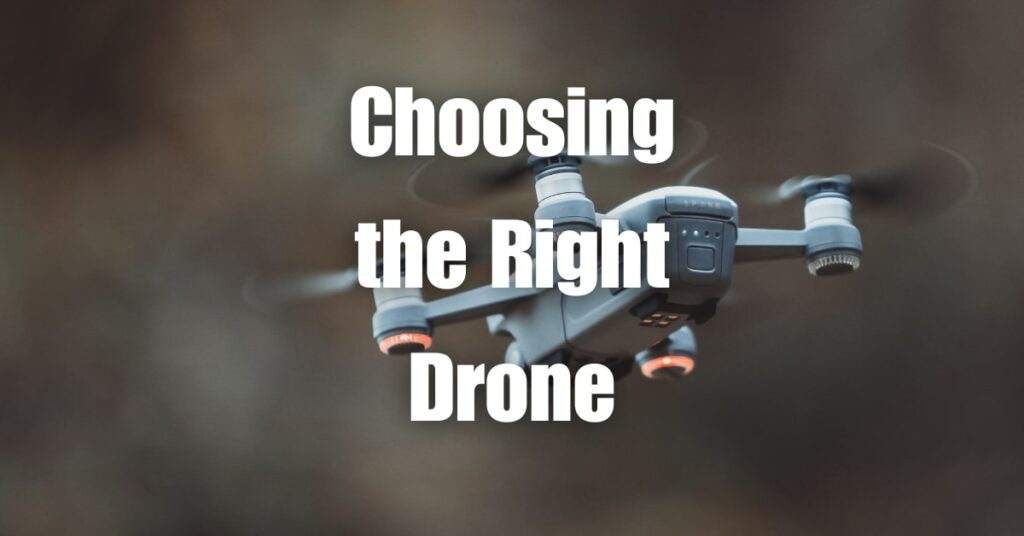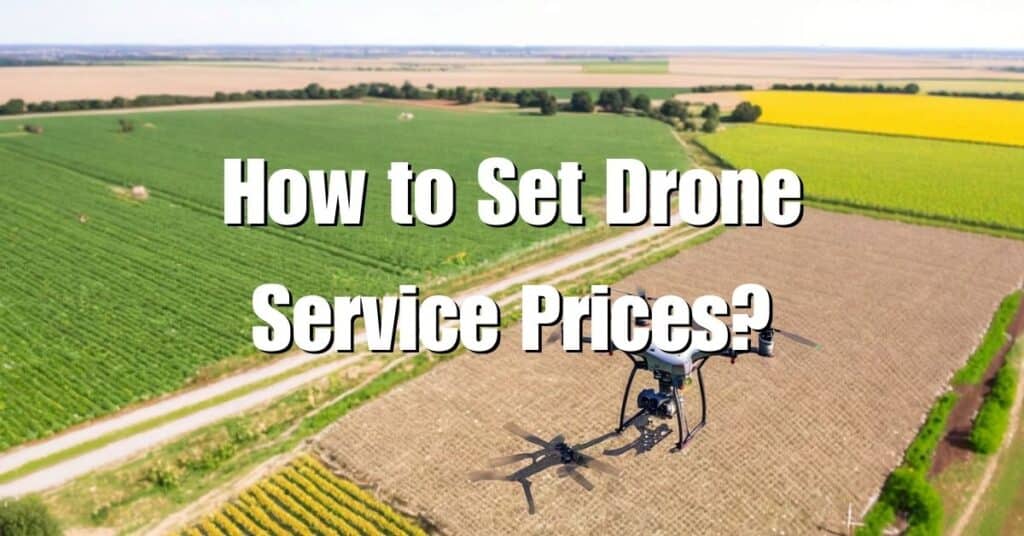Are you looking to enhance your business operations by incorporating drone technology? Drones have become increasingly popular in various industries, but knowing how to choose a drone for business can be a daunting task. In this article, we’ll walk you through the essential factors to consider when selecting the perfect drone to meet your specific business needs.
Understanding Your Business Needs
Before diving into the world of drones, it’s essential to assess your business needs and determine the specific applications for which you require a drone. Commercial drones serve various purposes across different industries, solving diverse problems and streamlining operations.
What are commercial uses for drones?
Drones have become a game-changer in many sectors, including agriculture, real estate, construction, search and rescue, photography and filmmaking, and more. Some common commercial uses for drones include:
- Surveying and mapping
- Inspecting infrastructure
- Monitoring crops and livestock
- Aerial photography and videography
- Delivering goods and supplies
- Emergency response and search and rescue
What industry uses drones the most?
Although drones are employed in numerous industries, their use is particularly prevalent in agriculture, construction, and infrastructure inspection. In agriculture, drones help monitor crop health, optimize irrigation, and detect pests or diseases. In construction and infrastructure inspection, drones can access hard-to-reach areas, collect data, and provide real-time information, making these processes more efficient and cost-effective.
What problem do drones solve?
Drones offer various solutions to businesses, including:
- Reducing time and costs associated with manual labor
- Enhancing safety by reducing the need for human intervention in dangerous or hard-to-reach areas
- Providing real-time data and insights for informed decision-making
- Increasing efficiency in data collection and analysis
Differences Between Commercial and Hobby Drones
When choosing a drone for your business, it’s crucial to understand the differences between commercial and hobby drones, as their features, capabilities, and intended use vary significantly.
Commercial drones are designed for professional use and cater to specific industry requirements. They often come with advanced features such as high-resolution cameras, longer flight times, larger payload capacities, and enhanced stability. These drones are built to withstand harsh conditions and provide reliable performance in various applications. However, they tend to be more expensive than hobby drones.
Hobby drones, on the other hand, are typically used for recreational purposes such as photography, videography, and casual flying. They usually have limited features compared to commercial drones, shorter flight times, and smaller payload capacities. While hobby drones are more affordable, they may not be suitable for professional applications due to their limited capabilities.
When selecting a drone for your business, prioritize the specific needs and requirements of your industry and ensure the drone you choose aligns with those needs.
Types of Drones for Businesses
There are various types of drones available in the market, each with its unique features and capabilities. Understanding the different drone categories will help you make an informed decision when choosing the right drone for your business.
Fixed-Wing Drones
Fixed-wing drones have a traditional airplane-like structure, with wings providing lift instead of rotors. They can cover long distances and have a longer flight time compared to other drone types. They are ideal for applications such as surveying large areas, mapping, and monitoring wildlife. However, they require a runway for takeoff and landing and are not suitable for hovering or precise maneuvers.
Multi-Rotor Drones
Multi-rotor drones are the most common type of drone, with several rotors providing lift and control. They are ideal for applications requiring precision, such as aerial photography, videography, and inspections. Multi-rotor drones can hover, move in any direction, and perform complex maneuvers. However, they have a shorter flight time and limited range compared to fixed-wing drones.
Single-Rotor Drones
Single-rotor drones resemble small helicopters with one main rotor and a tail rotor for stability. They offer longer flight times and higher payload capacities than multi-rotor drones, making them suitable for applications such as agriculture, surveying, and cargo transportation. However, they can be more complex to operate and maintain compared to other drone types.
Hybrid Drones
Hybrid drones combine features of fixed-wing and multi-rotor drones, offering the best of both worlds. They can take off and land vertically like multi-rotor drones and have the range and endurance of fixed-wing drones. Hybrid drones are versatile and suitable for various applications, but they can be more expensive than other drone types.
Key Questions to Ask When Choosing a Drone
When selecting the perfect drone for your business, it’s essential to ask yourself some critical questions to ensure you make the right choice. Here are some questions to consider:
What drone should I get for my business?
Determine the specific requirements of your business and the applications you will use the drone for. Make sure to choose a drone that meets those needs and has the necessary features to support your intended use.
How do I choose the right drone for me?
Consider factors such as your budget, the drone’s features, flight time, payload capacity, and ease of use. It’s also crucial to check the legal and regulatory compliance requirements in your area before purchasing a drone.
Essential Features to Consider
When choosing a drone for your business, it’s crucial to evaluate the essential features that will best serve your specific needs. Here are some key features to consider when making your decision:
Camera and Imaging Capabilities
Depending on your industry and application, you may require high-quality cameras and imaging systems. For instance, professional photography, videography, and inspection services often demand high-resolution cameras with excellent stabilization. In agriculture, multispectral cameras can provide valuable insights into crop health. Ensure the drone you select has the appropriate camera and imaging capabilities for your business needs.
Flight Time and Range
Flight time and range are critical factors to consider when selecting a drone. Longer flight times and ranges allow for more extensive coverage and fewer interruptions due to battery changes. Fixed-wing and hybrid drones generally offer longer flight times and ranges compared to multi-rotor drones. However, your choice should be based on your specific requirements and the trade-offs you’re willing to make.
Payload Capacity
Depending on your business needs, you may require a drone capable of carrying additional equipment or payloads. For example, in agriculture, drones may need to carry sensors or spray systems for crop monitoring and treatment. In delivery services, payload capacity is essential for transporting goods. Choose a drone with adequate payload capacity to meet your specific requirements.
Stability and GPS Accuracy
Stability and GPS accuracy are crucial for many drone applications, especially in industries such as surveying, mapping, and inspections. Stable drones provide better image and video quality, while accurate GPS systems ensure precise data collection. Look for drones with advanced stabilization systems and high-quality GPS modules to ensure optimal performance in your business operations.
Benefits and Disadvantages of Drones
When deciding whether to incorporate a drone into your business, it’s essential to weigh the benefits and disadvantages of using this technology. Here are some of the key advantages and drawbacks to consider:
What are the benefits of drones?
- Improved efficiency: Drones can perform tasks faster and more accurately than manual labor, reducing time and costs.
- Enhanced safety: Drones can access dangerous or hard-to-reach areas, minimizing the risk to human workers.
- Real-time data and insights: Drones can collect and transmit data in real-time, enabling informed decision-making.
- Environmental monitoring: Drones can assist in monitoring and managing natural resources, wildlife, and environmental conditions.
What are the disadvantages of drones?
- Initial investment: High-quality commercial drones can be expensive, requiring a significant upfront investment.
- Maintenance costs: Drones require regular maintenance, which can add to the overall cost of ownership.
- Regulatory compliance: Businesses must adhere to strict regulations and guidelines for drone usage, which can be complex and time-consuming.
- Privacy concerns: The use of drones for surveillance and data collection can raise privacy concerns and potential legal issues.
Budget and Maintenance Considerations
When choosing a drone for your business, it’s essential to consider both the initial investment and ongoing maintenance costs. Here are some factors to keep in mind:
How much do drones cost?
The cost of drones varies significantly depending on their features, capabilities, and intended use. Hobby drones can cost as little as a few hundred dollars, while high-end commercial drones can cost thousands or even tens of thousands of dollars. It’s crucial to determine your budget and select a drone that meets your requirements without breaking the bank.
Keep in mind that the cost of the drone itself is not the only expense. Additional costs may include accessories, spare parts, batteries, software, and insurance.
Maintenance
Regular maintenance is crucial for ensuring the longevity and performance of your drone. Maintenance costs can include:
- Replacing worn or damaged parts
- Updating firmware and software
- Routine inspections and calibrations
- Battery replacement and management
Make sure to factor in these ongoing costs when determining your overall drone budget.
Legal and Regulatory Compliance
Operating a drone for commercial purposes requires adherence to specific legal and regulatory requirements. These regulations can vary depending on your location and the type of drone you’re using. Here are some general considerations when ensuring compliance:
Obtain necessary certifications and permits: In many countries, commercial drone operators must obtain certifications or permits to legally fly their drones. Research the requirements in your area and make sure you have the necessary qualifications before operating a drone for business purposes.
Follow airspace rules: Drones must be operated within designated airspace and may be subject to altitude restrictions. Familiarize yourself with local airspace rules and regulations to avoid potential legal issues.
Adhere to privacy guidelines: The use of drones for surveillance and data collection can raise privacy concerns. Be aware of the privacy guidelines in your area and ensure your drone operations respect these rules.
Stay informed about updates: Drone regulations are continuously evolving, and it’s essential to stay informed about any changes that may impact your operations. Regularly check for updates to local and national drone regulations and adjust your practices accordingly.
Top Drone Models for Business Use
There are numerous drone models available in the market, each with unique features and capabilities. To help you make an informed decision, we’ve compiled a list of some top drone models that are popular among businesses:
DJI Matrice 300 RTK: This powerful, versatile drone is ideal for various commercial applications, including surveying, mapping, and inspections. It features a long flight time, precise RTK navigation, and a range of payload options, including high-resolution cameras and thermal imaging sensors.
Parrot Anafi USA: Designed for professional use, the Anafi USA offers a rugged design, high-resolution camera, and thermal imaging capabilities. It’s well-suited for applications such as infrastructure inspections, search and rescue, and public safety operations.
SenseFly eBee X: This fixed-wing drone is perfect for surveying and mapping large areas, thanks to its long flight time and range. With a range of payloads, including high-resolution cameras and multispectral sensors, the eBee X can cater to various industry needs.
Autel Robotics EVO II: The EVO II is a versatile multi-rotor drone with impressive camera options, including an 8K video camera and a 6K camera with a one-inch sensor. Its compact design and advanced features make it suitable for professional photography, videography, and inspection services.
DJI Agras T20: Designed specifically for agriculture, the Agras T20 is a powerful drone with a large payload capacity for carrying sensors or spraying systems. Its advanced flight planning and autonomous operations make it ideal for crop monitoring, spraying, and other agricultural applications.
When choosing a drone for your business, consider factors such as your specific needs, budget, and the drone’s features and capabilities. Always research the latest models and compare their specifications to ensure you select the perfect drone for your business requirements.
In conclusion, choosing the right drone for your business requires a thorough understanding of your specific needs, the types of drones available, and their essential features. We hope this article has provided you with valuable insights to make an informed decision. To further enhance your knowledge about drones and their applications in various industries, we recommend visiting our comprehensive guide on building and growing your drone business.
If you’re in need of professional drone services, don’t hesitate to reach out to Blue Falcon Aerial by visiting our contact page. Our team of experts is ready to help you take your business to new heights with our cutting-edge drone technology.




